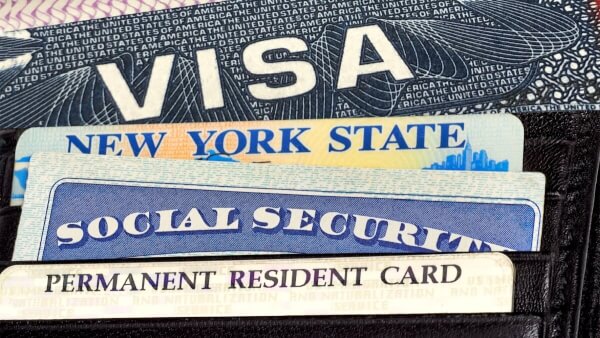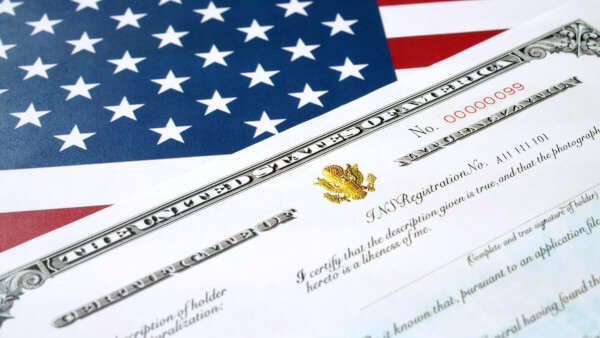Transferring your international driver's license to the US: step-by-step
Your full guide to updating your foreign driver's license to the US.

###Some 680,000 Brits share the U.S. with their American cousins. They all speak English, but do y’all understand each other?
Americans and Brits share a lot of commonalities: a love of spectator sports, hard work ethic and, oh yeah, the English language.
Yet many Brits will find themselves scratching their heads at the numerous American idioms and expressions.
Here’s a quick guide to some of the most common.
####Literally
Americans will literally, like, misuse this word a million times.
In America, you might want to stop wondering how something can be “literally” possible and see that it’s (not literally) used to accentuate the hyperbolic statement they just made.
####Lay an Egg
If an American person says they laid an egg, they are probably not part of some strange science experiment or impersonating a hen.
Rather it means they were completely unsuccessful at something. A flop, if you will.
####John Hancock
You may be confused when, at the bank, the teller asks for your John Hancock. You look around -- where and what could this strangely named object be?
It actually refers to a signature, a term that is attributed to one of the founders of the Declaration of Independence and his flamboyant way of autographing his name.
####Cattywumpus
To a Brit, this term likely sounds like an unusually furry person who has been rolling about in a swamp.
Rather this regional Southern term (also sometimes ‘cattywampus’) is often used to describe a situation that is in complete disarray.
####The Lack of Adverbs
In addition to “literally”, many Americans tend to chop the “ly” off of their adverbs. “He’s real nice,” is a phrase you’re looking to hear, especially if situated in the south or midwest.
But even official slogans (Apple’s “Think different”, for example) will neglect it. After a while you’ll also accept people not speaking proper.
####Let’s Take a Rain Check
This is a quintessentially American phrase. It originated when a baseball game was rained out, and spectators were given a ticket to catch the event another time.
Now Americans will drop it whenever they can’t show up and want to suggest another ambiguous meeting time in the future.
####Shooting The Breeze
An American might proclaim that they’re spending a lazy weekend with friends, “just shooting the breeze.”
They most likely haven’t brought out riffles at a rather windy shooting range, but are rather engaging in idle chatter. The saying did, however, originate from the Wild West when cowboys with extra time on their hands would fire into the sky.
####Monday Morning Quarterbacking
What would the American language be without an expression related to football? This one refers to criticizing something in hindsight -- the same way Americans will heatedly discuss a quarterback’s performance on Monday morning following the big game.
####Chump Change
“Chump change” refers to a small or insignificant amount of money that you aren’t concerned about.
The term first popped up in the mid 20th century and is widely used across America.
####Clutch
It pops up in the most random sentence, you have no idea what it means. Somehow, something is clutch.
All sports fans in the US know that clutch means getting "exactly what you need, exactly when you need it.”
####The Subtle Differences
There are many slight variations them Americans will have on phrases. When agreeing with you, Americans will just say “Right”, whereas Brits will give a slight elaboration of “Ah right,” “Mmmhmm”, “I see.”
And to Americans, the “first floor” is actually what Brits would consider to be the “ground floor.” Brits will also muse “it’s all down to you,” not “up to you” as Americans prefer. As for, “I could care less” - well, let’s not get started on that one, we know it makes no sense...
####Nearly everything your banks says
These differences in language apply to the world of finance, too.
A “base rate” is a “prime rate” for Americans. The British “barometer stock” is really a “bellwether stock”. VAT? It's sales tax here. Current accounts are checking accounts, your bank notes are bills...
####Moving money back to the UK, or over to the U.S.? Don't get stung with a bad exchange rate.
Wise charges just 1% or 0.7% over $5,000, far less than that wire fee your bank offers. And most importantly, we never use a mark-up on the exchange rate (unlike a bank or broker) - so you'll receive far more money than you would if you used your bank.
How does it work? Watch Bloomberg explain:
*Please see terms of use and product availability for your region or visit Wise fees and pricing for the most up to date pricing and fee information.
This publication is provided for general information purposes and does not constitute legal, tax or other professional advice from Wise Payments Limited or its subsidiaries and its affiliates, and it is not intended as a substitute for obtaining advice from a financial advisor or any other professional.
We make no representations, warranties or guarantees, whether expressed or implied, that the content in the publication is accurate, complete or up to date.

Your full guide to updating your foreign driver's license to the US.

Whatever your reason is for moving to the US, this guide aims to help you figure out the most important costs you'll face when you live there.

Find all you need to know about getting a personal loan for H-1B visa holders in this guide.

Everything you need to know about the US certificate of naturalization.

The US welcomes large numbers of new arrivals every year — and getting a great job to both gain experience and set down roots is a core part of the American...

Find everything you need to know about the US citizenship test, including the USCIS questions and answers.